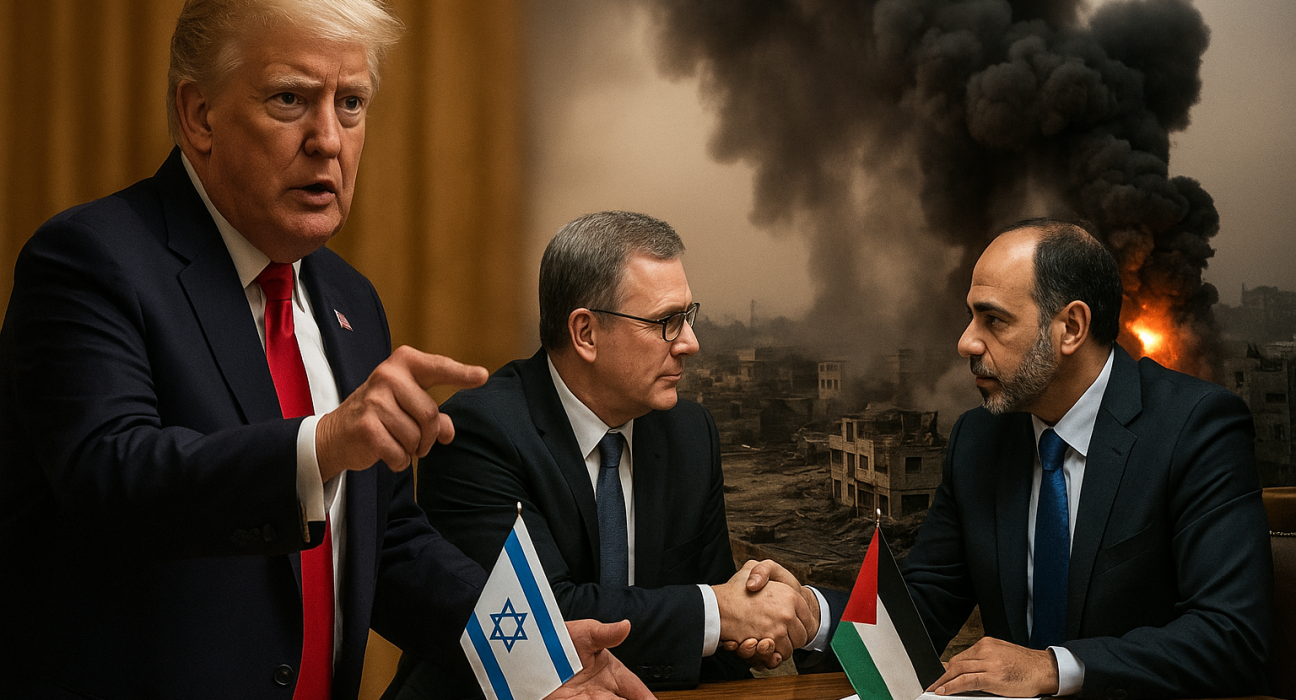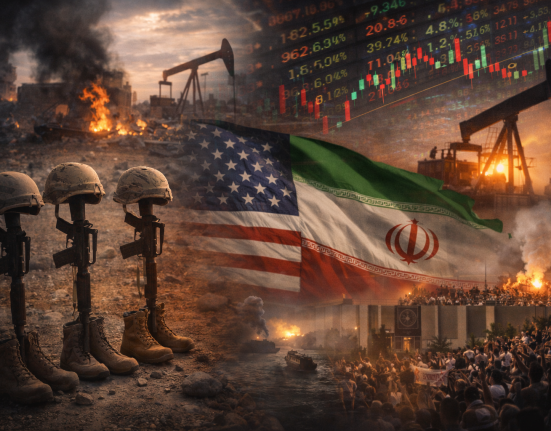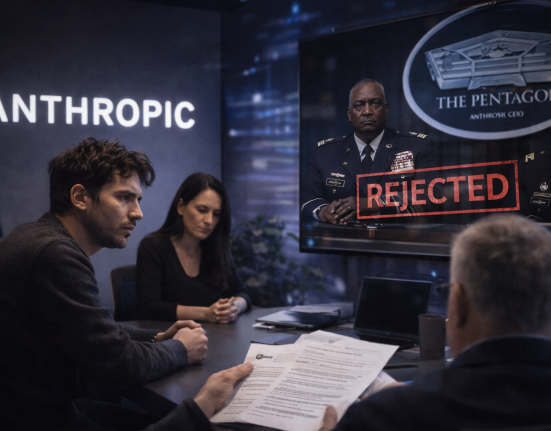The BBC article presents commentary by its Middle East editor, Jeremy Bowen, on former President Trump’s role in brokering or influencing a recent ceasefire deal in Gaza. Bowen argues that while Trump’s intervention was influential in advancing the immediate agreement, it should not be misconstrued as a lasting model for peace.
Bowen highlights that ceasefires in Gaza historically have been tenuous, often interrupted by renewed violence or violations. He cautions that Trump’s approach—using heavy leverage, diplomatic pressure, and public signaling—may have achieved a short-term pause but lacks addressing the deep structural issues: territory, governance, displacement, and security guarantees.
The article notes that the ceasefire agreement involved complex negotiations among Israeli, Palestinian, U.S., and regional actors, with details such as hostages exchange and aid corridors included. However, Bowen emphasizes that the real test lies in whether parties commit to rebuilding confidence, renewing diplomacy, and avoiding further attacks.
He also points out the risk of conflating tactical success with strategic direction: media and political figures may overstate Trump’s contribution, presenting it as a template, when the fragile status quo may crumble without sustained engagement and international mediation.
Bowen further discusses the role of narratives: how the way media portrays the ceasefire influences perceptions of success, legitimacy, and responsibility. He warns that crediting one actor too heavily risks marginalizing other stakeholders or downplaying ongoing humanitarian and political challenges.
Key Points
- Trump played a forceful, visible role in pushing toward the Gaza ceasefire, but that does not guarantee enduring peace.
- Gaza ceasefires have historically been fragile; violations and renewed conflict are common.
- The ceasefire deal included complex components—aid access, hostages, timing—that will test the durability of the agreement.
- Strategic issues (governance, border control, long-term security) remain unresolved.
- Media framing matters: positioning one figure as central risks obscuring other contributors, context, and responsibilities.
- Bowen suggests caution against treating this episode as a repeatable “model” rather than a unique intervention under specific conditions.
Implications & Broader Themes
Surveillance, Narrative Control & Media Influence
- Framing power: The article underscores how media narratives can amplify or suppress certain actors’ roles. When one person is portrayed as key peacemaker, others’ contributions or constraints may vanish from public view.
- Selective spotlighting: Emphasizing Trump’s role may align with political agendas that seek to bolster a leader’s foreign policy credentials, shaping public memory of the event.
- Control of narrative as soft power: In geopolitical conflict zones, who tells the story—and which perspectives are elevated—plays a critical role in shaping domestic and international legitimacy.
- Potential for criticism suppression: If narratives become so centered on a particular individual, dissenting voices or critiques may be marginalized, especially if they clash with the dominant framing.
Political Risks & Strategic Fragility
- Ceasefire as tactical pause, not peace: Without resolving root causes (territorial claims, refugee rights, governance, external pressures), any truce is vulnerable to collapse.
- Credibility risk: If hostilities resume or agreement terms falter, key actors may face reputational damage. Those seen as deal-makers will be judged harshly if peace unravels.
- Overreliance on individuals: Diplomatic success tied to a single figure (rather than institutional frameworks) may lack resilience—if conditions change, so might the agreement.
- Encouragement of transactional diplomacy: If ceasefires become seen as achievements of diplomatic theater rather than structural compromise, negotiation incentives may shift toward gestures over substance.
Pros & Cons (Neutral Evaluation)
Pros (Potential Positive Aspects)
- Diplomatic momentum: The intervention may break stalemates and open humanitarian corridors or prisoner exchanges when prior efforts stalled.
- Visibility & leverage: A high-profile actor can bring attention, resources, and pressure to bear, potentially accelerating outcomes that local actors couldn’t achieve alone.
- Narrative boost: Media coverage of success (even temporary) can build political will and public support for more sustained diplomacy.
- Platform for renewed engagement: A ceasefire creates breathing room for talks, rebuilding, or confidence-building measures.
Cons (Risks & Weaknesses)
- Fragile foundation: Without addressing structural and root conflicts, the ceasefire may collapse, making gains ephemeral.
- Narrative distortion: Overemphasis on one individual’s role risks erasing the complexity: regional actors, local institutions, civil society, and external forces.
- Unbalanced power dynamics: If the narrative elevates one party, weaker actors may feel marginalized or coerced.
- Precedent for celebrity diplomacy: Politics may favor dramatic interventions over slow, sustained institution building, reducing incentives for thorough negotiation.
- Backlash if expectations unmet: If public expectations are built around a “heroic broker,” failure could breed cynicism or delegitimization.
If you like, I can also produce a 1200×675 image (no text) capturing themes from this article—peace, diplomacy under strain, narrative tension.
References
- “Bowen: Trump’s role in Gaza ceasefire was decisive, but not a roadmap to peace” — BBC News
- Context and analysis from Reuters, Axios, The Guardian on Gaza ceasefire, partisan narrative, and regional diplomacy








Leave feedback about this
You must be logged in to post a comment.